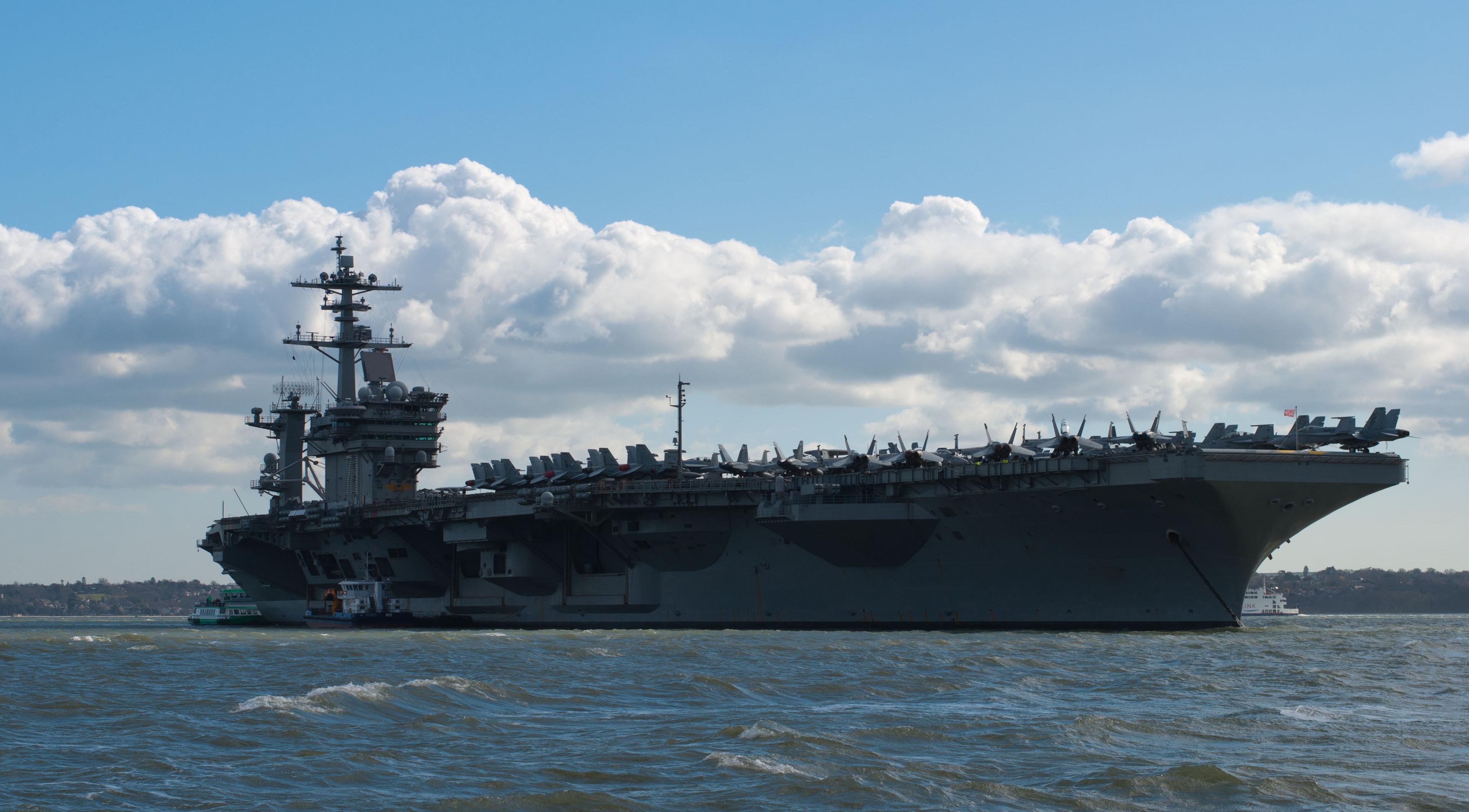Iran, Ismail Haniyeh, Assassinations
12 U.S. warships deployed as Israel waits for retaliatory attacks
The substantial US naval presence serves as both a deterrent and a readiness measure, signaling Washington's commitment to regional stability while preparing for potential further escalation.

The United States has quietly assembled a formidable naval presence near the Middle East as tensions in the region reach a boiling point following the recent assassinations of key Hamas and Hezbollah leaders.
While the Pentagon has not officially announced new deployments, at least a dozen US warships are now positioned strategically in the area.
The naval force includes the aircraft carrier USS Theodore Roosevelt and its strike group, currently stationed in the Persian Gulf. Accompanying the carrier are six destroyers: the USS Cole, USS John S. McCain, USS Daniel Inouye, USS Russell, USS Michael Murphy, and USS Laboon.
In the eastern Mediterranean, the US has deployed the Wasp Amphibious Ready Group, consisting of three amphibious assault ships - the USS Wasp, USS Oak Hill, and USS New York - along with two additional destroyers, the USS Bulkeley and USS Roosevelt. This group carries over 4,000 Marines and sailors, significantly boosting the US military's rapid response capabilities in the region.
The buildup comes in the wake of high-profile assassinations that have shaken the Middle East's already fragile stability. Ismail Haniyeh, a top Hamas leader, was killed in Tehran, while Hezbollah's military chief, Fuad Shukr, was eliminated in a separate incident. Both deaths have been attributed to Israeli operations, though Israel has not officially claimed responsibility.
Secretary of State Antony Blinken, speaking to reporters during his diplomatic tour in Mongolia, called for restraint from all parties. "The current trajectory leads only to more conflict, more violence, more suffering, and more insecurity," Blinken stated, emphasizing the urgent need for de-escalation and a ceasefire in Gaza.
Notably absent from the US naval deployment is a presence in the Red Sea, where American forces have recently clashed with Yemen's Houthi rebels, resulting from numerous Houthi attacks on commercial and military vessels in recent months.
Funeral services for both Haniyeh and Shukr took place today (Thursday), attended by high-ranking officials in Tehran and Beirut respectively, while Israel has readied itself for likely retaliation.
* The Washington Post contributed to this article.